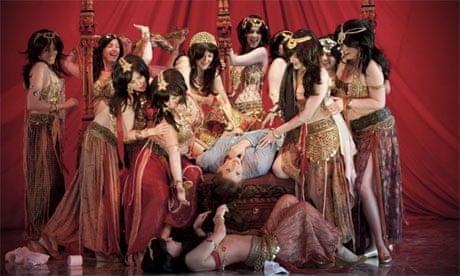Premiered in Naples in 1820, Rossini's opera about the siege of Negroponte by the Turkish sultan Mehmet II soon disappeared from the stage, to be replaced by the composer's own more successful French revision of the piece as Le Siège de Corinthe. Yet Garsington's first UK production of the original shows it to be one of his most impressive creations, despite its length and the undiluted seriousness that challenged early 19th-century audiences.
The plot depicts Maometto and his Turkish forces taking the Venetian stronghold of Negroponte, despite a brave defence led by the local governor, Erisso, and his intended son-in-law, Calbo. Erisso's daughter Anna, meanwhile, finds herself torn between familial and patriotic loyalties and her attraction to Maometto, whom she had fallen in love with when he was reconnoitring Greece in disguise. The stage is set for bellicose ensembles and arias of extreme and regularly conflicted emotions, which Rossini sets to music as vocally flamboyant as it is harmonically tense and orchestrally powerful.
Designed by Robert Innes Hopkins, Edward Dick's staging shirks none of the negativity with which Mehmet and his forces are presented – scarcely surprising in a piece premiered just a few months before the beginning of the Greek war of independence. Yet equally he and bass-baritone Darren Jeffery supply the Turkish conqueror with a complexity that makes him anything but a simple villain; given his grandeur, and even a grim sense of humour, it's little wonder Siân Davies's Anna finds herself indifferent to the prospect of a dutiful marriage to Caitlin Hulcup's staunch Venetian general, Calbo. Paul Nilon's Erisso, meanwhile, shoulders the dual responsibility of bringing his daughter into line while trying to combat the mighty if unscrupulous Turks. All four principals acquit themselves honourably in Rossini's taxing vocal writing, while conductor David Parry leads a bold general assault on the score.

Comments (…)
Sign in or create your Guardian account to join the discussion